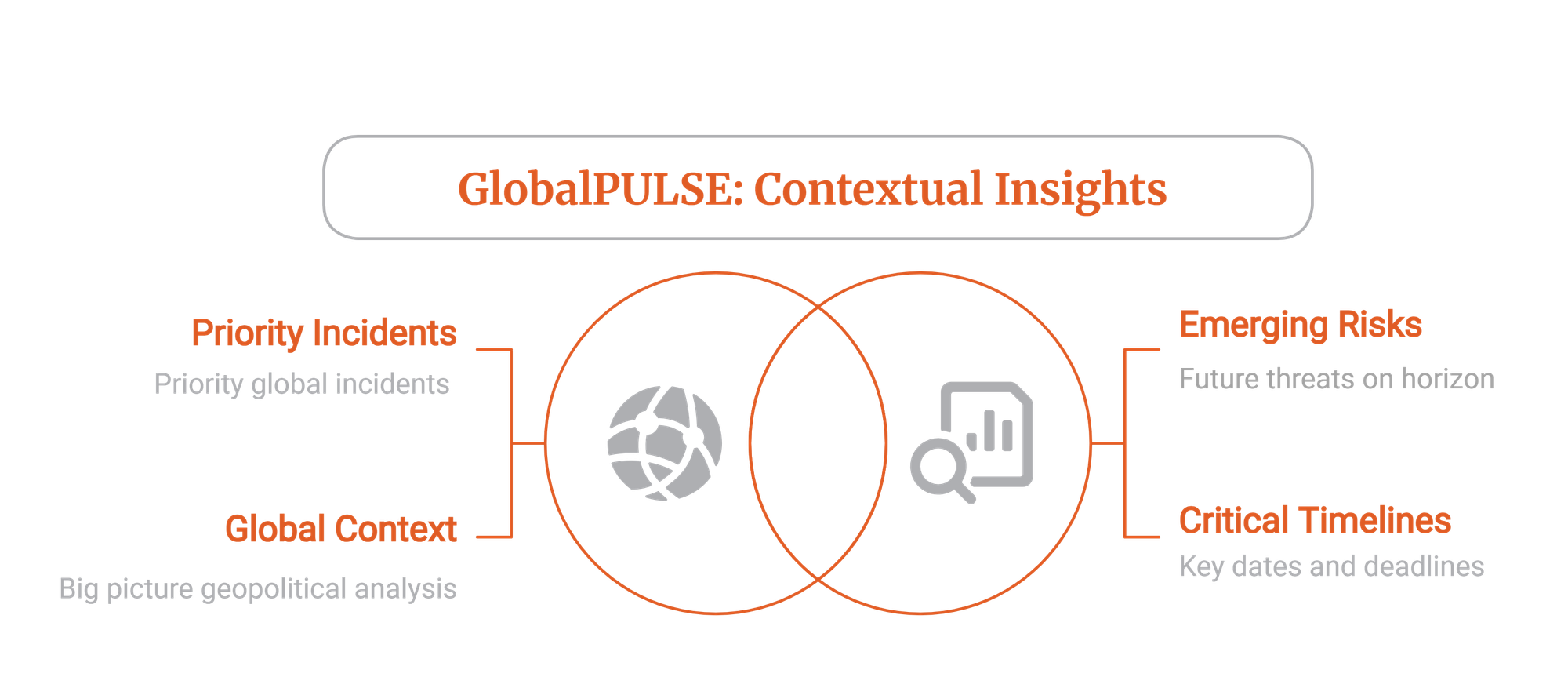
Report Details
Initial Publish Date
Last Updated: 17 NOV 2025
Report Focus Location: Global
Authors: CB, CC, CI, DL, EA, FZ, JC, JH, MA, MAM, NB, PS, SZ, ZR
Contributors: GSAT
GSAT Lead: MF
RileySENTINEL provides timely intelligence and in-depth analysis for complex environments. Our global team blends international reach with local expertise, offering unique insights to navigate challenging operations. For custom insights or urgent consultations, contact us here.
Executive Summary
This weekly report provides a comprehensive analysis of critical events, emerging threats, and significant developments across our global watchlist countries. Our Geopolitical & Security Analysis Teams continuously monitor and assess incidents affecting regional stability, security, and business operations.
Editor's Note on Updated Reporting: Originally published November 3, 2025, with OHCHR's initial October 31 count of at least 10 confirmed deaths. Casualty assessments evolve as communication restrictions lift, Tanzania's internet blackout initially constrained verification. Updated figures reflect subsequent OHCHR, Human Rights Watch, and diplomatic reporting as information access improved, consistent with intelligence reporting standards.
Key Global Concerns:
- Electoral integrity crises are causing regional instability in Latin America, Europe, and Africa. Honduras faces coup allegations before November 30 polls. Guatemala's president accuses judicial actors of plotting overthrow. Tanzania's 98% election victory sparked deadly protests, spreading to Kenya. Georgia's bid to ban opposition parties threatens 2026 election legitimacy.
- Security sector militarization trends, starting with Brazil's militarized security sector which led to 119 deaths in Rio's deadliest police raid. El Salvador's extended state of emergency, Colombia's armed conflicts, and Mexico-U.S. maritime disputes highlight escalating, varied security challenges across the Americas..
- Mideast ceasefires remain fragile. Over 100 Palestinians died in Israeli strikes after alleged Hamas truce violations. Lebanon's order to confront Israeli incursions signals escalation risk. Iran excludes bombed sites from IAEA inspections, maintaining nuclear program opacity.
- Climate and humanitarian catastrophes compound institutional failures. Hurricane Melissa killed at least 26 across Haiti, Jamaica, Cuba, and the Dominican Republic, while Bolivia's flooding affected 2,000 families. Sudan's El Fasher siege resulted in mass atrocities including hospital massacres, and 50% of children under five in DR Congo require urgent food aid amid collapsing humanitarian access.
- Geopolitical realignments intensify with Venezuela's suspension of Trinidad and Tobago energy agreements due to U.S. naval presence, Belarus strengthening North Korea and African ties, and Saudi Arabia investing $925 billion in sustainable projects. Evolving strategic architectures are seen in the India-U.S. 10-year defense framework and China's brokering of a Myanmar ceasefire. Escalating conflict is highlighted by Ukraine-Russia infrastructure attacks on both capitals.
- Cross-border contagion effects emerge as Kenyan border officers deployed tear gas into Tanzania during electoral protests, Montenegro suspended visa-free entry for Turkish nationals after criminal incidents, and Poland intercepted Russian aircraft over the Baltic.
Report Overview

Remaining content is for members only.
Please become a free member to unlock this article and more content.
Subscribe Now















